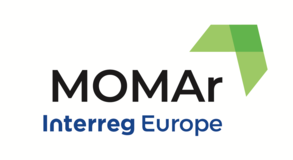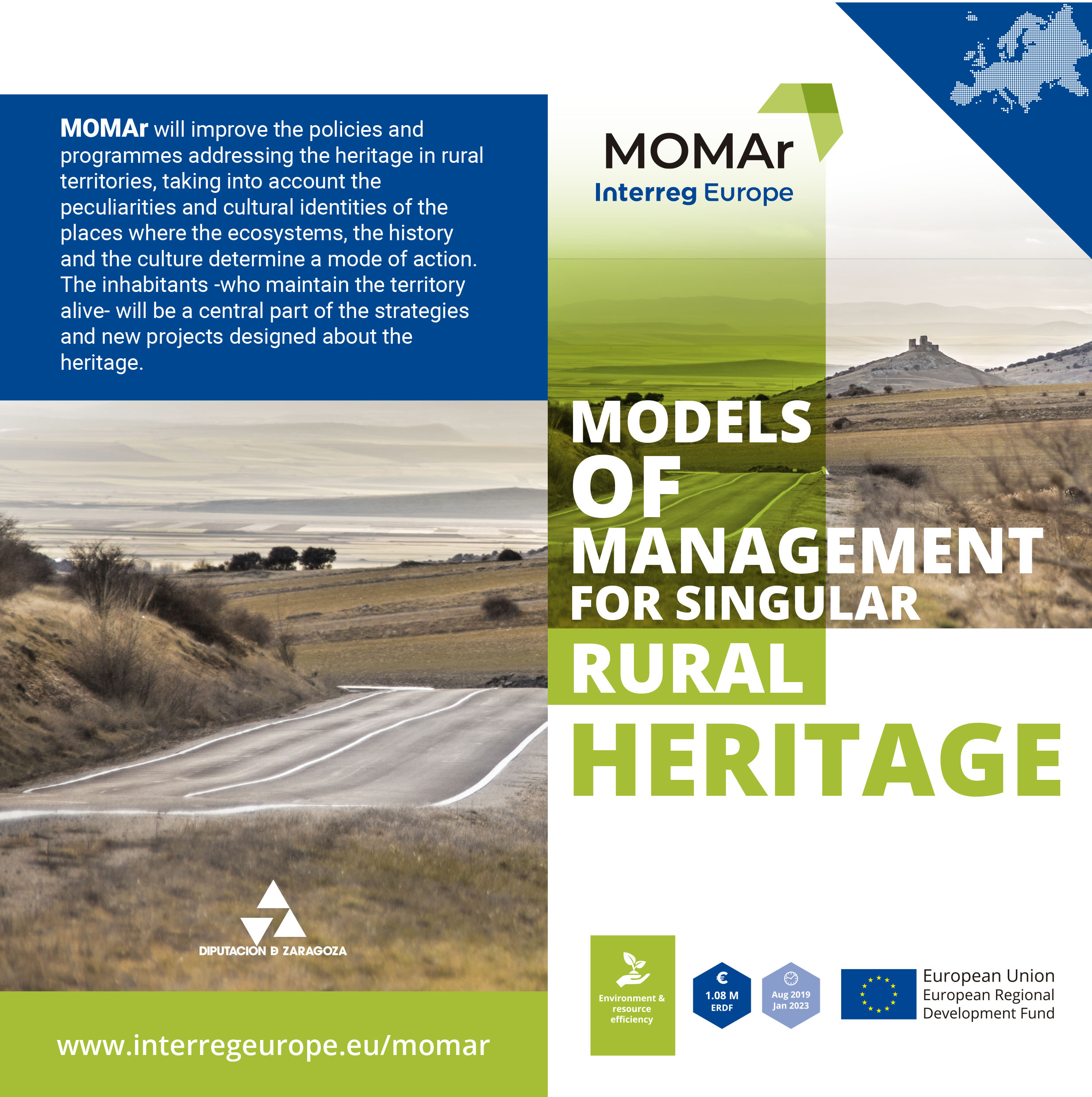The project Interreg MOMAr means providing strategic thinking to the use of cultural and natural resources, incorporating all the actors involved in its management and creating models of economic and social development and territorial sustainability with them all, fostering the rural area’s identity without copying or moving models from other environments, but tailoring them. The project highlights the existence of territories with problems such as depopulation, ageing, no use of resources, whose identity is however marked by a rich heritage, exceptional in some cases - UNESCO heritage - and whose management entities have either not finished defining their models of action in terms of cultural and natural resources or directly borrowed models that do not correspond to the territorial reality.
Education, culture, art, and sustainability were identified as powerful drivers to recover these undermanaged heritage sites.
As a step forward to achieve the goal of improving the territorial models of management, the 22 April MOMAr organized an international meeting where partners, stakeholders, and external experts in heritage management were invited to share and debate about models of management and strategies for territorial improvement. The event served as the kick-off of the “Case Study Laboratory” that should be organized in Saxony-Anhalt to work together in the partnership on the applicability of the models of singular heritage management learned to undermanaged or unexploited heritage identified in the partner regions.
The meeting took place online and started with a presentation round heading up by MOMAr partners and stakeholders who explained different cases of study. Even though each country has its own peculiarities, the chosen cases displayed some common situations. Issues with ownership of sites, shortage of funds, proper models for specific local needs were transversal challenges; and education, culture, art, and sustainability were identified as powerful drivers to recover these undermanaged heritage sites.
The second part of the session offered a debate among the participants. The experts discussed the need to involve local people with their own heritage, especially children. In that sense, the managing director of Transromanica, Christin Leser, pointed out: “We need to create responsibility in our children for the future, it is moving to see heritage integrated into the society not just as a historical island”.
Furthermore, the experts talked about the need to include sustainable elements in the heritage projects, for instance, the renovation of spaces instead of building new ones or to consider the costs beyond the construction budget, taking into account the environmental and social impact of all the actions.
The event had to chance to count on the assistance of distinguished experts and stakeholders, among them: Andreas Brohm, economist, and Mayor of Tangerhütte (Altmark region); Ascensión Hernández, professor at Universidad de Zaragoza and expert in heritage conservation; Chiara Lucia Maria Occelli, expert in architectural restoration at the Politecnico di Torino; Christine Friedrich, managing director Köthen Castle and director of the Köthen Museum; Elles Bulder, expert in living environment in Transition and professor at Hanze University of Applied Sciences of Groningen; Herman Waterbolk, advisor in spatial quality and specialist in cultural heritage and history of architecture; Jean-Michel Tobelem professor at Université Paris 1 Panthéon-Sorbonne and expert in cultural tourism; Meike Kompaan, expert in heritage management of the Province of Groningen and Pilar Biel Ibáñez, expert in industrial heritage and heritage management at the Universidad de Zaragoza.













